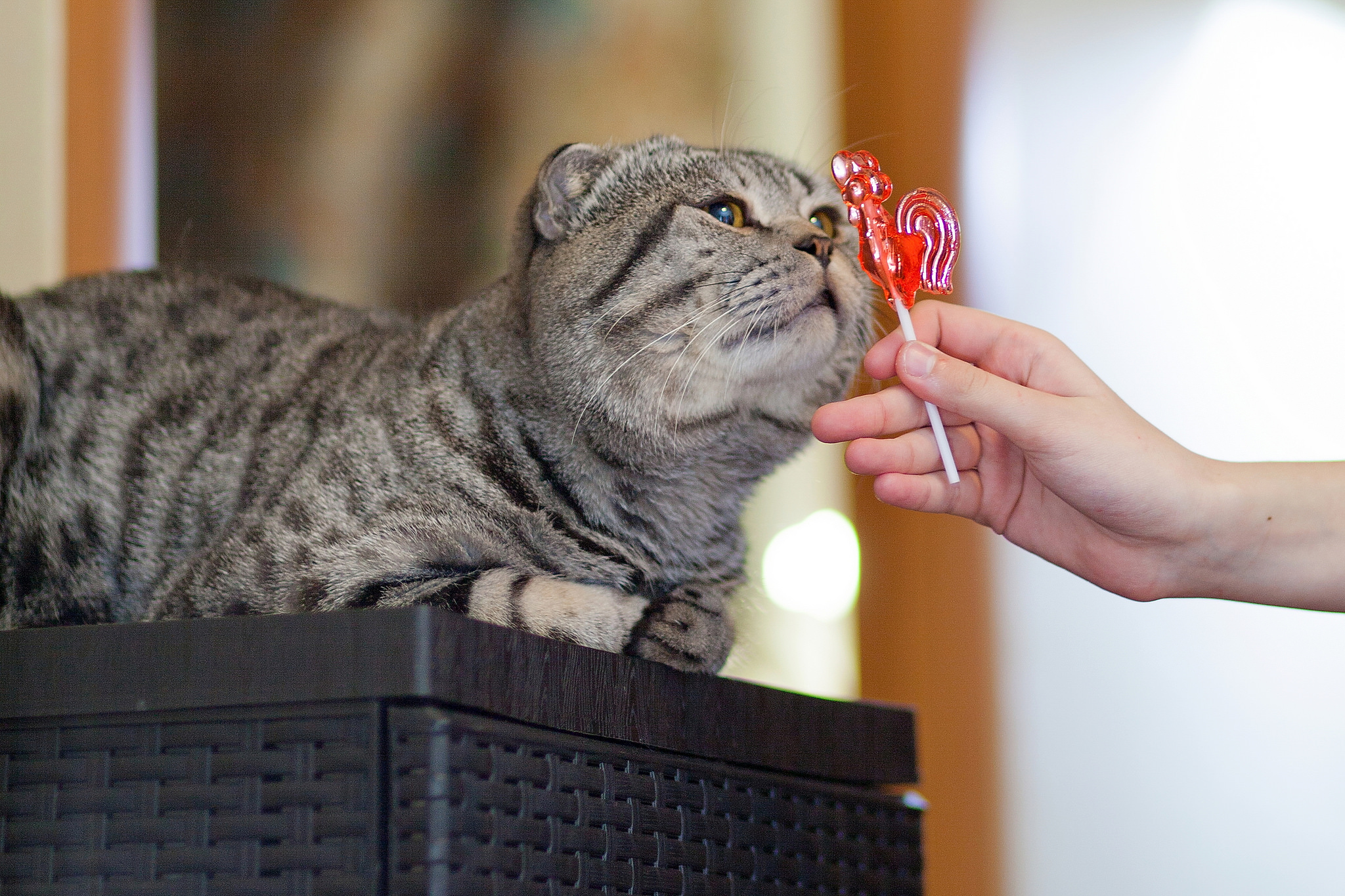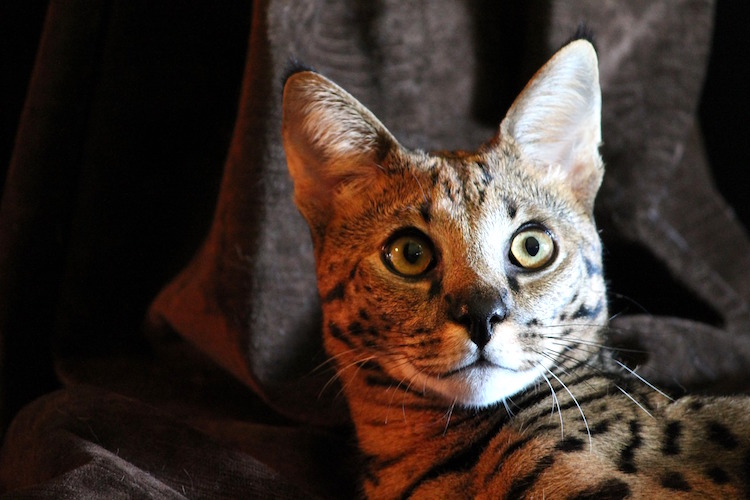4 Surprising Facts: Why Can’t Cats Taste Sweet Things?
For years we suspected that cats don’t like sweets. We now know it’s more about abilities than attitude. Here’s the answer to why can’t cats taste sweet things.


Don’t leave your pet’s food safety to chance
Sign up for Petful recall alerts today.

Do you know the answer for why can’t cats taste sweet things?
For years it was known — but not truly understood — that domestic cats, along with other members of the feline species, do not like sweets. Sugar and spice and everything nice? Not so much.
Cats have always been known as picky eaters — unlike dogs, who seem to devour just about any food you put before them. (And can you even imagine humans not being enticed by those sugary delights?) Thus, this has raised questions of not only do cats like sweets, but can cats taste sweet things?
Cats Don’t Have the “Hardware”
It turns out cats aren’t just turning up their nose to sugary treats for lack of interest. The answer to the question “why can’t cats taste sweet things?” is because they biologically do not have the desire for a taste of something sweet.
In 2005, scientists from the Monell Chemical Senses Center, in Philadelphia, discovered that a genetic deficiency deletes the sugar detectors on the taste buds of a cat. In other words, cats do not possess the genetic “hardware” needed to taste sweets. Okay, that’s the short version. Good enough for me.
But here’s the longer version, for you science-inclined folks out there: The scientists examined the DNA sequences of six domestic cats. Upon analyzing the two genes responsible for sweetness detection, the researchers discovered that one of those two genes, “Tas1r2,” was missing 247 letters, meaning it lacked the ability to make a crucial protein for tasting sweetness. Got it?

They Need Meat, Not Sweets
According to Scientific American magazine, felines are really only interested in one thing other than a little petting or a nap: meat.
That’s right — unlike dogs, for instance, cats in the wild eat meat exclusively. And your cat would too, if she had a say in the matter.
However, most commercial pet food manufacturers today use corn and other grains in their products — around 20% on average, give or take — which partly explains why feline diabetes is so common. Cats’ bodies simply cannot handle all the carbohydrates in those foods.
But Why Does My Cat Does Like Sweets?
It is sad to think that a cat will spend her whole day catching and eating food, yet never top off that meal with a tasty dessert. Personally, sweet treats like ice cream or chocolates are my comfort foods. I cannot fathom a day without some sort of sweet sensations.
Occasionally you might run across a kitty who does eat fruit, cake, ice cream, marshmallows or some other super-sweet food. But that doesn’t mean your cat can actually taste sweetness.
Here are some likely explanations for a cat that does eat sweet things:
- Could just be the smell. Flavor is about more than taste, after all.
- Salts or amino acids in the dessert may be attracting the cat.
- Some other flavor may have your cat’s interest (bitter, savory, fatty…)
- It’s even possible that your cat enjoys the texture.
Should Cats Eat Sweets?
This biological characteristic could be a blessing in disguise for felines. While many of us pet parents have wondered “do cats like sugar” or “why can’t cats taste sweet things”, the other question worth considering is: should they even be eating it? Sugary snacks may not be the best option for cats, as foods high in sugar are not healthy because they’re not used to them, making treats more difficult for kitty’s to digest.
Additionally, whether cats like sweet stuff or not, eating too many of them could lead to obesity or other health issues. There’s no real nutritional benefit in sugary sweets for cats, and maybe it’s for the best that they don’t feel a strong desire to eat or not eat sweet things due to their tastebuds.
We humans, along with most other mammals excluding felines, seem to have it all — five kinds of taste buds! Sour, salty, umami (meatiness), bitter and — yes! — sweet. Yet cats seem to be content with their genetic profile. Their motto is basically “Meat can’t be beat!”
I suppose it is all in what you get accustomed to.
FAQ
If Cats Can’t Taste Sweet Why Do They Like Ice Cream?
Just because your feline friend won’t turn down a lick of ice cream doesn’t mean what they’re actually enjoying is the sweetness. So, do cats like sweets? Likely not, it’s more plausible that they are just fans of the texture or other flavors in the ice cream, not the sweetness. However, ice cream isn’t particularly healthy for cats, and so it’s best to avoid serving it to them anyways.
Can Cats Smell Sweet Things?
If you’re already wondering “can cats taste sweet things?”, it’s only naturally to also ask, can cats smell sweet things? Well, it is true that cats have a much stronger sense of smell than they do taste, and it can often make up for their lower amount of taste buds.
Can Cats Eat Sweets?
It depends. Some sweet things aren’t toxic to cats, but that doesn’t mean they are necessarily good for them. The non-toxic treats can cause weight gain and stomach upset in cats. However, some sweet things are toxic for pets, like treats containing xylitol, for example. Thus, while the answer to “can cats eat sweets?” is a conditional maybe, it’s best to keep the sweets away from your cat to prevent any possible health issues.
Additional Resources
- Scientific American: Strange but true: Cats cannot eat sweets
- Monell Chemical Senses Center: Defective sweet taste receptor shapes cat cuisine
- The Washington Post: Cats’ sweet tooth long gone







